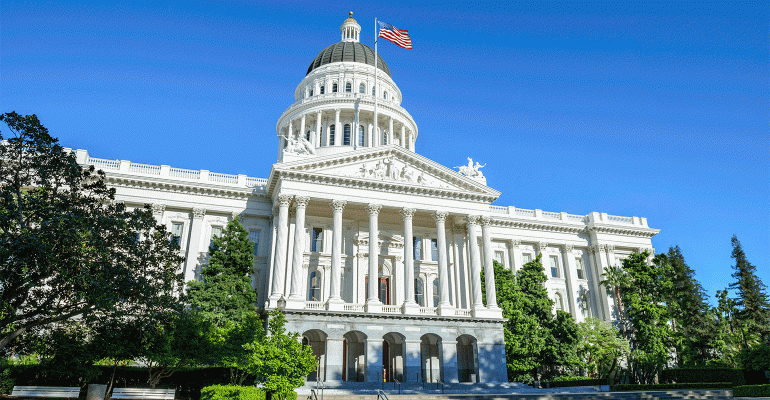California lawmakers introduced Wednesday a $9.6 billion COVID-19 relief package proposal that includes $2 billion in grants of up to $25,000 for small businesses, as well as two years of license fee relief for 59,000 California restaurants and bars that currently have liquor licenses.
The proposed package is a compromise based on Gov. Gavin Newsom’s original Golden State Stimulus bill announced in January with the goal of speeding relief to individuals, families and businesses that have suffered the most.
“As we continue to fight the pandemic and recover, I’m grateful for the Legislature’s partnership to provide urgent relief and support for California families and small businesses where it’s needed most,” Newsom said in a statement. “From child care, relief for small business owners, direct cash support to individuals, financial aid for community college students and more, these actions are critical for millions of Californians.”
Here’s what is in the proposed relief package:
- $600 checks to households receiving the California earned income tax credit, and $600 for California residents with individual tax identification numbers and income under $75,000 that were precluded from receiving earlier federal payments.
- A fourfold increase in small business grants of up to $25,000 from $500 million to $2 billion.
- Permission for small businesses to deduct up to $150,000 in expenses covered by Paycheck Protection Program and Economic Injury Disaster loans. Businesses that took out larger loans would be also allowed to deduct up to $150,000 for tax purposes.
- Two years of liquor license fee relief for 59,000 restaurants and bars (with fees ranging from $455 to $1,235 annually)
- $400 million in subsidized childcare
- $24 million in financial assistance for families through Housing for the Harvest, which provides relief for agricultural workers.
- $100 million in relief for low-income community college students
- $6 million to support outreach in SNAP assistance for eligible college and university students
While the proposed bill aims to help multiple categories of state residents and businesses, small businesses and restaurants would receive specific relief in the proposal. Currently, California is the only state that continues to widely ban indoor dining, though it is allowed with restrictions in a few counties. Other locales, like New York City and New Jersey, recently resumed indoor dining after COVID-19 case counts decreased.
Restaurant advocates like the Golden Gate Restaurant Association hope that largely populated counties and areas will move out of the purple tier (which completely restricts indoor dining) to the red tier (which allows indoor dining at 25%) by the first week of March, according to the San Francisco Chronicle.
These aren’t the only state-level efforts being taken by California legislators to help restaurants. California Assemblymember Jesse Gabriel announced Wednesday progress on legislation that would help restaurants “facilitate more outdoor dining” and expand options for takeout and delivery. The legislation — which is expected to be heard in the Assembly Governmental Organization Committee in the coming weeks — would:
- Temporarily halt requirements for fully enclosed kitchen and takeout areas to allow for air flow.
- Allow restaurants to take advantage of parking spaces for increased outdoor dining capacity.
- Lower speed limits in “business activity districts” to allow for safer expanded outdoor dining.
- Temporarily halt restrictions on outdoor alcohol service.
- Provides flexibility in regard to existing alcohol licenses.
- Create a process for regulating alcohol delivery to ensure it is not delivered to minors.
- Allow coffee bars to set up outside temporarily.
The National Restaurant Association, meanwhile, on Thursday issued a "blueprint" to aid state lawmakers in offering relief for local restaurants.
Hoping for more support at the state and local level, the association sent the "Blueprint for State and Local Restaurant Recovery" to the National Governor's Association, the U.S. Conference of Mayors and the National Conference of State Legislatures, detailing 11 steps lawmakers could take to help struggling restaurants. The steps include establishing grants for restaurants, safeguarding tax treatments, creating hiring/rehiring tax incentives, providing property tax relief, creating workplace protection tax credits, suspending sales taxes on food, making alcohol to-go permanently legal, streamlining outdoor dining permit renewal, and enacting liability protections.
There is also still hope for restaurant relief at the federal level. The House of Representatives is expected to vote on the budget reconciliation bill — including the $25 billion relief package based on the 2020 RESTAURANTS Act — the week of Feb. 22.
Contact Joanna Fantozzi at [email protected]
Follow her on Twitter: @joannafantozzi





